The total cost of British military operations in Afghanistan since 2001 (up to and including financial year 2019-20) was £22.7 billion.
The Marquess of Lothian asked via a written question in the House of Lords:
“To ask Her Majesty’s Government what has been the total cost of British military operations in Afghanistan since 2001.”
Baroness Goldie, Minister of State for the Ministry of Defence, responded:
“The total cost of British military operations in Afghanistan since 2001 (up to and including financial year 2019-20) was £22.7 billion. Details of expenditure for financial year 2020-21 will be included in the MOD’s Annual Report and Accounts that will be published later this year.”
The War in Afghanistan was a conflict that took place from 2001 to 2021. It started with an invasion that led to the United States and its allies toppling the Taliban-ruled Islamic Emirate of Afghanistan in order to deny al-Qaeda a safe base of operations in the country.
For most of the period that followed, the war was officially fought between allied NATO and Afghan Armed Forces, and opposing Taliban insurgents. The Taliban regained power 19 years and 8 months later after defeating the Afghan Armed Forces following the withdrawal of most NATO forces.
The real cost of this war is 3,576 dead.
United States: 2,420
United Kingdom: 456
Canada: 159
France: 89
Germany: 62
Italy: 53
Others: 337
In addition, there were 22,773 wounded.
United States: 19,950
United Kingdom: 2,188
Canada: 635
Figures from NATO.


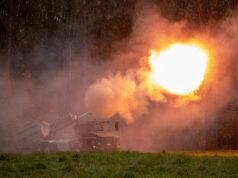

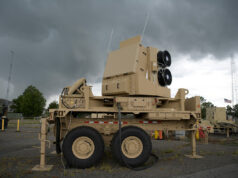
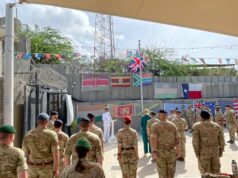

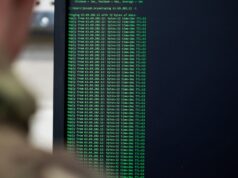
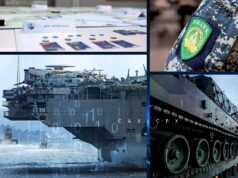
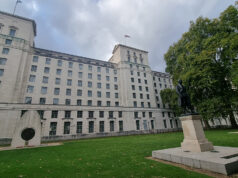
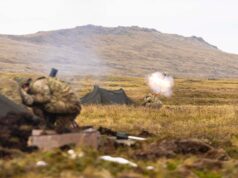
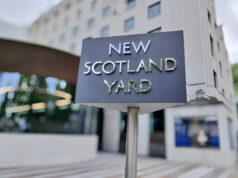

HMG puts the UK figure at 457, following the death of a soldier last year. RIP to all of them. Of course, my thoughts are with the families of those who gave their lives, as well as those who’ll be watching the news asking what it was all for. That will be the real cost of this. The human cost. We’ll be paying for the effects of that for decades to come.
Don’t forget the 66k Afgans killed and probably 100-200k injured on top. The issue with not having a proper get out plan once objective completed (not that it ieasy to have those).
Saw the same in Iraq (v2). “Easy” to attack, more difficult to retreat. It did stop major terrorist attacks for 20 years but hey ho. But also have to remember what triggered it all with 9/11.
Very interesting documentary on BBC about where this came from and the need for “justice” and revenge: BBC iPlayer – 9/11: Inside the Presidents War Room
To be fair we didn’t have a major terrorist attack on western soil, coming out of the middle East, for 20 years before it either. We will never know if the war helped prevent future attacks or not.
It’s obvious Steve, western boots in a muslim nation makes millions of muslims hate us and it created many thousands of never ending stream of terrorists to fight against us.
We are defo far safer now we have left. Muslims always seen us as invaders not liberators so they called for jihad to fight us. We need to stay out muslim nations, let them sort their own crap out in their own dump.
The hatred for the West by Islamic militants won’t ever go away. We are vulnerable in our homelands.
It won’t ver go away but not occupying their homl
Homeland helps. And considering how much Islamists hate the UK i just don’t understand why we keep importing more and more Muslims into the west, Trojan horse type stuff!
Hmm that’s often offered up as an argument or excuse but almost the same date as the London bring attack a terrorist exploded a device in Jakarta the capital of the largest Muslim country., a few years back in Poso Indonesia there was almost civil war between Muslims and Christians. This far deeper than resentment of the west. It looks like that if you view it through the narrow window of history we have lived our life through, but examine the history over a longer period and its clear its a long running conflict stretching back many many 100s of years.
islamic radicalism and response are always double edge sword. extremism does form within when regular media like propaganda and occupation best their interest, feeding some secular hate or plain cause and effect. at the end of the day, playing god will either cause one side to get leverage or loose traction
I saw the programme. Bush, with his trademark smirk, regretted none of his decisions, but who did initiate mission creep from eliminating Al-Qaeda and writing down the Taliban to regime change and full nation-building?
What was the cost? Too much in my opinion. We won’t know the full financial cost until the last disambled soldier passes away and then we’ll know the full social care and hospital costs. The after effects will be with us for many decades. I think that those politicians that brought us into this war should pay an addiitonal financial cost towards the care of veterans – won’t happen though – only my own pipe dream. God only knows where Tony Blair managed to make his millions from an MP and PM’s salary. I often think what is the point in voting these days – I really do.
Hi Andrew,
I can only bring myself to vote because I think of the suffering my Granddad went through during WW1. I know it was over 100 years ago, but he was someone I knew as a child.
He came back with a metal plate in his head. Grim.
Our political system, politicians and political parties are not fit for purpose IMO. We need a serious overhaul and refresh of our democracy to make it fit for the challanges, both at home and abroad, of the 21st Century.
Cheers CR
Agree 100%, been saying this for years. It’s not representative or fit for purpose. It’s also inefficient by design and systematically prevents any sort of long term planning.
I’m in the process of rewatching Yes Minister/Prime Minister and so much of it still resonates.
Totally agree with you and CR that our system needs ‘revised’, its not like any new country starting up would be looking round the world for a template and picking the UK system. Can’t see it changing though, at least in a meaningful way, too many are too invested in the current set up. 🙁
All very depressing indeed 🙁
Hi Marked,
Sadly, yes.
What is doubly sad is that the House of Lords is ripe for reform.
It needs to have its own direct elections for at least some of the seats. It could be put on a seven year election cycle, using portional representation and with constituencies along regional lines. This would give those regions that feel left behind greater influence on the national stage. The seven year cycle would give stability and open up the opportunity for more strategic thinking. Furthermore, the portional representation would also, hopefully, prevent excessive majorities from forming enabling the upper house to effectively hold the Government of the day to account.
I would also ensure that Senior Ministers continue to be drawn from the House of Commons so that the upper house can, hopefully, be more independent…
Just my fantasy reforms 🙂
Cheers CR
No the Commons would never vote for an elected 2nd chamber. If it was elected it would have democratic credibility. It would be a rival too the commons for the first time in 100’s of years. As with all politics in the end it’s about power. But like you we can dream.
HMS diamond back on course, about to enter Suez Canal
22.7 billion spent and the RAF and Navy gutted to pay for the endless war in the sandpit….
The loss of life, thousands veterans living with permanent injuries of the visible and hidden kind and wholesale asset stripping of the Navy and the RAF, all for nothing, zip, absolutely sod all…..
Does anyone actually think the Taliban will protect woman’s rights, don’t make me laugh…..
Boy, do we need a full and in depth enquiry!
I’m not sure we do John. We entered into the conflict under article 5 which in my view was entirely necessary if we support the principle of mutual defence under NATO which has brought peace to much of the world over the past 70 years.
Where we have gone wrong is with the nation building. You can help a population build their own nation but you cannot impose a nation on an unwilling population.
The trouble with in depth enquiries is that they are normally used to hide simple truths.
All good points Mark, but, the vast majority of the cost in lives and the fact that the RAF and RN were left to whither on the vine, was incurred over the years of nation building.
You could argue that the critical mission of destroying the terrorist networks (as in base camps and training infrastructure) was accomplished by 2003.
Our Article 5 commitments were effectively finished by the end of 2003.
We (and others) gave our all, while some NATO counties gave very little indeed. It would appear Article 5 isn’t worth the paper its written on, let us remember that when they need help in future…
You make a good point with the enquiry, I sure as hell wouldn’t let the Government organise it, it needs to be independent and far reaching.
As much as I cant stand Cameron, he was after all, handed a poison chalice by Blair and spent much of his term trying to close Pandoras box.
Blair started it and committed us for the long haul, I would love to see him and his cohorts dragged in front of a full public enquiry…
The whole point of NATO, deterrents etc. is to stop the wars and enable countries to live in peace. This has worked well(ish) especially in Europe for 70 years especially with the likes of Russia in the mix. Where we all need some new tactics is against the smaller nations like Afghanistan, Iraq etc. This needs a little thought and perhaps some international cooperation as nobody benefits from sn unstable world.
I certainly think that with hindsight we stayed far to long. Go in do the job and withdraw. Sounds simple but is difficult to do in practice. If we don’t do this better next time there is something serious wrong.
The war on terror was an interesting concept but totally unnessesary. Quick, decisive and limited action in relatiation for the 9/11 attacks would have sent the necessary message.
The thing about politicians is they are all human and make mistakes. Some make huge mistakes. At the end of the day all we can do is choose our politicians more carefully perhaps focusing more on competence than anything else. 🙂
On the subject of the investment in the RN and RAF I suspect it would have been the same regardless of war fighting we engaged in. If we hadn’t gone to Afghanistan the money would probably have paid off the national debt or gone on Schools or Hospitals not necessarily the military.
“The war on terror was an interesting concept but totally unnessesary. Quick, decisive and limited action in relatiation for the 9/11 attacks would have sent the necessary message.”
I agree with most of your points,
But, are you saying we should not have created a new Army for Afghanistan?
With No army since 1992.
So In less then 2 years in Afghanistan, we invaded Iraq, so took off the focus in Afghan, so the op. went wrong thereafter.
Yes oddly I think that is what I am saying. Only a population (though a Government they have faith in) can create an effective Army. We did a good job under the circumstances but the results speak for themselves.
Yes the American doctrine at the time was that we attack terrorism werever it exists in the world. With the benefit of hindsight perhaps the solution is to just attack those terror networks and withdraw – moving on to the next target. We should only stay if asked?
Totally agree. The West had no right to nation build and especially not to replicate a western society. Who decided on that approach?
When you allow your country to be used to launch attacks on a country like the US you are inviting trouble. The pre 9/11 rulers in Afghanistan bear full responsibility for what followed. Western society does tend to clamp down hard on anyone launching terrorist attacks. Perhaps the new leadership in Afghanistan shuold take note.
Agree with you on everything except an enquiry The enquiry into the Iraq war, justified by outright lies, was a waste of time.
What we need is to learn from the Afghanistan failure that military intervention, especially with boots on the ground, should be the very last resort. The House of Commons did stop Cameron’s bid to intervene in Syria. Whether it would stop a future intervention that arises from the tilt to Asia Pacific and more forward basing, who knows?
Don’t forget that the army has been gutted too. Rapidly heading down to 72,500 regulars then probably to 70,000. No tracked AFVs have been modernised nor fleets replaced in 20 years, and all fleets drastically cut in size. Morale very shaky.
Hi Graham,
Providing they can make the Army Reserve elements work as advertised (l remain to be convinced), I don’t have ‘too’ much of an issue with 72,000.
Providing we stick to properly equipped, light force elements engaging in the future, i.e, no more than 5,000 (including RM elements) on relatively short operations, then it’s doable.
In fact the slimmed down, high tech force of tomorrow, would not be sized or equipped for an enduring 10,000 personnel Afghanistan type operation in the future …. Perhaps that’s not a bad thing?
What was the “defect” ? I have not seen it reported anywhere.
Cost in lives cant have a number put on it and everyone was needlessly lost.
If we had not gone in the military wouldnt be facing such a large black financial hole and we probably wouldnt be sat moaning about the lack of this and that on a daily basis on here.
But im sure Blair received a nice big commission cheque from various defence bodies for all the equipment we had to buy to do it.
Someone needs to mention the 60,000 + ANA & ANPF deaths, the 100,000 + civilian deaths and God knows how many of the other side who died too.
Yes honour our soldiers but never forget the overall human tragedy.
Well said. I wish the Afghan people peace and hope they get through their national bereavement, and we ours. Most estimates put the number who died in the American civil war at over 640,000. Some estimates put the number of deaths due to the English civil war at 200,000. Wars are a bloody business. They define the character of nations and the wounds take forever to heal.
Covid deaths in the US has exceeded that figure!
I’m not entirely sure the full cost in lives and permanent injury will ever be known Rob…
Is this figure the total cost or just the additional expense over and above what we would have spent anyway? It refers to military operations; what were the additional costs for eg infrastructure improvements? I have seen a full cost of £37b mentioned.
Whatever the true total, it was an avoidable and unnecessary expense for the UK and has together with the even more unnecessary cost of Iraq had a damaging effect on UK defence capabilities. Major programmes have been slowed down, others cut back or deferred indefinitely. Replacing the army’s obsolescent equipment will take years; RAF combat aircraft numbers have been halved.
The Integrated Review and linked papers failed to set out what we actually want our forces to do. The Thin pinstriped line blog has asked the question whether,in the light of Afghanistan, interventions with boots on the ground are now over, to be replaced by ” aggressive deterrence”. That would make sense but the IR has announced more forward basing and new littoral response groups, presumably to facilitate further interventions.
We need a proper rethink with a hard nosed focus on what the UK really requires to defend itself effectively.
I was curious about that also, what about wear and tear with equipment.
All of this pales when compared to the cost in lives when we last were hanging out there in the 1800’s when Gen Elphinstones army and their families retreated from Kabul in 1842 and 16,000 were massacred now that’s a real disaster and an example of only one incident during that whole sorry saga..
History just repeats a real pity those making the decisions didn’t educate themselves.
🏴 🇬🇧
Money and influence has an amazing ability to make people forget.
I’m not so sure about that. Firstly because we were last there in 1879 or thereabouts (at least in the19th century although I could be wrong there even as we have the later campaigns such as Malakand, Tirah etc in 1897 and then there’s the 1919 campaign – not sure if we crossed into A-stan in that one).
One should also recall that the Elphinstone disaster was only part of the story of the1st Afghan War and most of the casualties were camp followers (even military it was Indians not technically the British who suffered most losses) and life was cheaper in those days anyway (that may seem blaise but its the harsh reality of the time).
The sad thing is IMHO that we could have fulfilled our strategic goals (ie none/very few terrorist attacks on western countries originating from A-stan) back in 2002/2003 at a fraction of the price in blood and treasure to what we have paid.
Not really sure what your point is man? Or what your not sure about? Mine was in the broader context of our intervention as a whole in that land . I only referenced The Elphinstone disaster as it’s an example of well disaster and how it dwarfs any of the disasters of modern era intervention. A life is a life is a life I’m not sure why you are seeming to suggest that their is a scale of worth when it comes to human life ?
Disaster is disaster is disaster whether civilian , military , Indian , British. I call the death of 16,000 a disaster even if there were only 4500 troops among them. That’s history that’s fact and yes that’s life without the Esther Rantzen spin on it.
🏴🇬🇧
I have no idea who Esther Rantzen is – and admittedly no real interest in finding out. As for there being a scale of the value of human life I certainly belive there is – so we’ll just have to disagree on that point.
😂that’s life 👋🏻
you sound like a eugenics lover coming away with pish like that . I mean a statement like there being a scale for human life 😲 pretty unbelievable !
yes the Eugenicists movement and it’s evil viewpoint is very much alive in the 21st century…….
disagree we most certainly must ……
🏴🇬🇧
I’ve never given eugenics much thought one way or other. The concept I’m thinking of is relativety. The value of a life is not equal its relative to context of situation ( including who is making the valuation or in physics terms the observer) both of which may change. Understandably to many that may feel unpleasant but its just a fact. Re Kabul the Govt felt the loss of soldiers more keenly than camp followers then again to their families they may have had equal value ( or not – again circumstances dictate).
I still think we were right to go into Afghanistan post 9/11. Especially as the NATO treaty was, understandably, triggered by the US. To not go in would have seriously undermined NATO and sent a very danagerous message…
Do I think that effort, that cost in human and financial terms was worth it? Not now. Bidden and Trump threw it all away. The lack of consultation with NATO allies shows a lack of respect, at least in some quarters.
It has also underlined just how ‘junior’ we are in the special relationship. This is one reason why I think it is important that we seek to build new relationships with a wider range of like minded partners, Japan is beginning to look like a really good option. Like us they are an island trading nation sat close to the Eurasian land mass in a region of the world directly threatened by a large aggressive military power…
We are heading into what I think is shaping up to be a very turbulent century, we are going to need friends, partners and allies. That still includes the US / NATO, but needs to include others as well.
Cheers CR
We do need an investigation. We went in initially with light forces and the operation in the Tora Bora mountains was a success. Then came the deployment to Helmand, why did we do that? Well the mission morphed into something else (pacification) and our generals, desperate to get out of Basra, offered a quid pro quo to the Americans to do Helmand. We went into Helmand in 2006 with ONE combat maneuver Btn Grp (3 Para) to bring security to an area the size of half of France. I’ve said this before but it is worth saying again; there were serious miscalculations at BOTH the political & military levels.
The Army wanted to go into Helmand because they had run out of ideas about how to win in Basra. Helmand would be an easy win that would make them look good again. I know you couldn’t make it up.
David you are basically correct. The over optimism of the generals that they could pacify an area, as I say, half the size of France with one battalion was shear folly, what were they thinking?
Yep but I don’t honestly think they care whether it’s possible or not. They’re just interested in their next posting their next promotion. The ones who do care are not interested in the office politics and all the BS. They leave and we’re left with the rest.
Not going to argue with your assessment mate but the initial deployment for 3 Para BG was to secure a triangle between Bastion, Gereshk and Lash, to set conditions for future BGs to deploy further out. A slow, sensible plan. Then in may it went pear shaped when up in MQ a load of ANPF (bunch of nasty nonce bullies in the early days but that’s another story) were killed and the local Guv requested help from the national government who then asked UK head sheds who told 3 Para BG to get our shit squared away and forget the initial slow progressive plan and deploy further up north into MQ, then Nowzad the Sangin…..the rest as they say is history! Cheers.
I am reminded that originally it was thought that we could retake the Falklands and dislodge a garrison of 10,000 with just 3 Cdo Bde. 5 Inf Bde was added as an afterthought. Over confidence in the case of Helmand or lack of troops or lack of political resolve or just an obstructive Treasury?
Only misinformed US senior officers and politicians disrespect our work in Basrah with such vehemence, due to a lack of understanding of the situation and the broader mission.
I worked with Patrick Sanders and know that his leadership, decision making and tactical skills were superb.
Correct mate.
Hi Rob,
Mission creep. It is like slow moving invisible behemoth. Huge, unnoticed with unstoppable momentum. Then one day you wake up and find yourself in it up to your neck…
To avoid mission creep requires clear, honest and intelligent leadership.
Need I say any more?
Cheers CR
I dont agree at all that not going into Afghanistan after 9/11 would have undermined Nato.
The US was attacked by a group of individuals from various countries which then triggered a response of going and invading an entire nation of which not a single person who attacked the US came from.
Going into Afghanistan was a huge mistake and simply a knee jerk reaction from the US to go attack someone so it itself did not look weak. They didnt need to trigger anything in Nato as the US was not attacked by a nation but simply a well organised militant group.
The UK should have stayed out of it.
I do agree the future is very concerning and that we do need very strong allies around the world other than the US. The current administration I dont think is particularly favorable of the UK in its current form.
James the Americans implemented article 5 which meant that the Al Queada attack on NYC was deemed an attack on all NATO members. However the NATO mission was to destroy the terrorists NOT to drag Afghanistan out of the middle ages or regime change in Iraq. What we should have done is gone in and walloped AQ and then withdrawn to conduct overwatch operations from afar. The idea that we could make Afghanistan a 21st Century liberal democracy was always for the birds.
The invoking of article 5 was nonsense. Imagine the UK using it to seek US military help after an IRA bombing.
The article refers to armed attack. The hijackers had pepper spray and box cutters!
PIRA in NI was a domestic matter for UK. I am sure Article 5 was right following 9/11 but did the US call it in or the NATO Council? We were right to go into Afghan to take on and defeat AQ, but then to get the he’ll out of there.
I think it was the NATO Council that called it, in solidarity.
Yes the term solidarity that the Left likes to use when defending their interests.
They needlessly implemented article 5 was my point, it was only the US itself that got attacked not multiple nations and it was attacked by a group of individuals not an actual nation.
AQ was and still is a complex issue, they exist all over the place and eradicating them is virtually impossible, the US would have had to attack numerous countries some of which it simply wouldnt.
Again going into Afghanistan was a complete waste and should never have happened.
AQ was Not all over the place at the time, they were in Sudan before 98 and left for Afghan, then set up camp there in 98.
Yes the US could of acted alone, but instead went in with others. Yes it was attacked by a group of individuals but representatived by a organisation that was hosted by a nation.
Absolutely spot on mate!
And this is the ongoing problem for the Western pro-liberalist democracies. Governments, countries individuals etc are constrained by their world views and this is why we (the West) keep making the same mistakes about trying to nation build rather than an in/out military campaign and leave – period (as for the mess left – the locals can sort it – not our problem).
“…rather than an in/out military campaign and leave – period…”
Easy said, than done!
Just look at Gaza, with civilians used as hostages.
Point to note:
the U.K. ended combat operations in theatre in Oct 14. The troops that remained provided training to the Sandhurst in the Sand and military support to diplomatic staff.
Total cost, £22.7 billion. Telephone numbers is all that figure is! No doubt we sent over our ‘own pallets of money’ as the Americans did, to smooth grease, and smarm our efforts along the way.
Kit lost, stolen, sold etc etc. Same with equipment. The vast amount of money wasted in these areas alone … lets be honest, we will never know.
The cost of usable kit and equipment left behind … no real figure can be put on that, especially if it ends up in the wrong hands, and used to kill people.
Cost of the fallen, cost of the injured, maimed, disfigured, I don’t suppose that was factored in anywhere either.
War is mean, brutal and savage. Those on the front line earn their pay, and then some. However, they have no part in spending the ‘telephone numbers’.
Who, where how a lot of this money goes, is anyone’s guess.
I think it was only the Yanks that left kit behind.
So that billion a year we save will go back into defence budget?
No. The operational budget doesn’t come from the MOD budget but from the UK Treasury contingency budget.
Its a fallacy to believe not spending on one means spending on something else, some people will have you believe the defence budget could be spent on the nhs, it won’t, it will just mean the government would spend less.
Professional soldiering mate. As a professional we fight the war we get sent to and face the enemy that presents itself. People died doing the job they chose as the professional people they were. I’ve said this a few times, war is shit, smelly, wasteful and unforgiving, but I dont know a single one of my lads who regret going. We chose the profession, we knew it could happen and when push comes to shove you do the fighting that’s required when told to. As a professional organisation we dont get to choose the fight, and if it’s not for you/us/them choose another career. Cheers and stay safe.
I am surprised at the high casualty figure for the Canadians when usually they deploy a small contingent. Anyone have any details?
Seem to recall a sticky few months for them where one of their COs got an axe in the head at a tribal elders house
They had a Coy group and Arty lads in Robinson just south of Sangin in April, May 2006. They were getting hammered so they pulled out, 140 plus if memory serves, and we replaced them with 28 Arty lads from I Bty 7RHA, with 2 x 105mm light guns, who also did the initial Sangin patrols, from the back of ANA Toyota pick ups. They left 12 lads on the guns, and the rest did the initial patrols. There was an ANA Kandac but they didn’t leave FOB Rob. We were shocked as feck when we turned up and seen what the heck was going on. Head sheds had no clue, those lads did bloody good with feck all kit and wagons.
Ok grim question. How did the US get an 8:1 ratio of wounded to dead and UK/CAN only get a 5:1 ratio? How did they keep a bigger percentage of their wounded alive and what can we learn from that?
I remember a British soldiers waiting 30 odd minutes with a fatal gunshot wound for a British medivac to even take off.. Th guy died, even if the chopper came quicker he could have still died but he would have had a bet chance
Thanks for sharing. I’m sorry to hear that.
Hi Tim,
Mostly, it is down to better and more kit. Armoured vehicles and personnel equipment – body armour, for example.
Being big also helps as you have more people and equipment deployed so you can move things around to where it is needed and do it more quickly. The US has been especially well equipped when it comes to air power, even to the point of using B1B’s on tatcical precision strikes on occassion! Neither the UK or CAN have that kind of fire power.
So what can we do – basically fund our armed forces properly, and sort out the blasted procurement system. The army is still struggling to get its equipment programme on track, but the RAF and RN seem to be doing better. Hopefully, the army will see similar improvements soon – preferrably before the next war!
Also, we need another financial uplift once the dust from the current uplift settles Approx. 2% of GDP is simply not enough in the current geopolitical situation. Back in the 70’s it was 4.6%, even 3% would generate a considerable increase in capability, provided it isn’t wasted of course. Which is sadly a big proviso!
Cheers CR
My thoughts too. For all our experiences with small medivac helicopters and UK air ambulances and we just don’t have them anymore when our soldiers need them. “Ammo forwards, Casualties back.”
So true we must spend more on defence ,just last night talking to a friend of my who is Ex Army Medical REG ,he was took back when I told him some MPs are talking about creating an Afghan regiment with Ex soldiers of there’s who were brought back over the last few week’s just like we have the Gurkas .It was on the MOD news 24/7 site .Is words we’re Andy Gukas fight .What do you Guys make of this 🤔.
The big picture doesn’t matter, you fight for the guys next to you.
I think this shows who are the real supporters of Nato.
As a civilian with military family we can’t justify another war like this with the end result now apparent.
The human & £ cost will not end here with supporting refugees add this to the costs of Syria/Libya & Iraq and all we are doing is destabilising the world and spending money that can be spent on Homeland defence, schools and hospitals.
My Great Uncle Percy was in the UK armed forces and sent to Afghanistan in the late 1800s, he told some grand stories and said it was an unconquerable place.